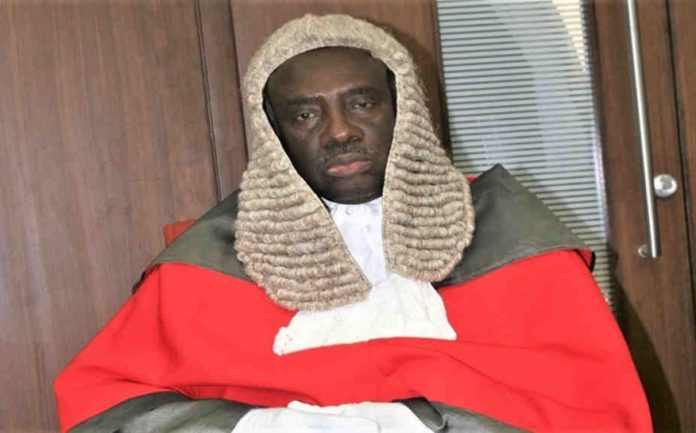By Amara Thoronka
Gambia’s Chief Justice Hassan Jallow has said inasmuch as the country aims at enhancing reconciliation, it should be established on truth telling, forgiveness and accountability.
Chief Justice Jallow made the statement while presiding over the annual Judiciary Colloquium on international criminal justice held on Tuesday 15th March 2022 at Sir Dawda Kairaba Jawara Conference Centre in Bijilo.
“With the conclusion of the Truth Reconciliation and Reparation Commission (TRRC) mandate, submission of its report to Government and the pending release of the White Paper by the executive arm of Government, the country stands at a historic but challenging moment. The road ahead will be no less challenging, no less difficult. Even as reconciliation continues to be the national goal and objective but must be on the very solid pillars of truth telling, forgiveness and accountability.”
The annual judiciary engagement was centered on addressing key issues affecting management of hybrid court, gender-based violence and forced disappearance and issues captured in the TRRC report.
Both the Gambian bench (magistrates and judges) and the bar (lawyers) discuss the prospects and challenges in criminal prosecution and a potential hybrid court for prosecution of crimes captured in the TRRC report.
“The TRRC report has heightened public expectation of justice from the judiciary. The Gambia judiciary has played a crucial role in upholding the fundamental human rights of citizens as enshrined in the constitution and other regional and international instruments and mechanisms to which The Gambia is a party,” Justice Hassan Jallow explained.
He said ensuring justice for Two Million people (Gambians), in the context of transitional justice, will be a challenging task primarily because the Gambia judiciary will have to deal with a range of systematic allegations over an extended period.
“The judiciary remains strongly committed to ensuring that there is access to justice for everyone or victims who feels aggrieved. Justice for victims of violations is necessary and important for peace and reconciliation. What goes into each of these three pillars needs to be determined by the respective public authorities in a consultative manner with stakeholders to reflect national aspirations. The choices will not be easy. The road ahead will be challenging. Whatever choice we make must be transparent and objective. The judiciary is central to the pillar of accountability, and we must as an institution begin to prepare ourselves for this task.”




